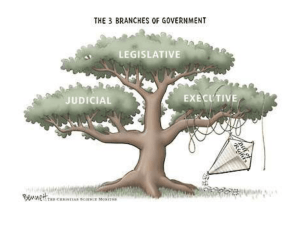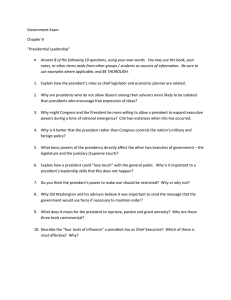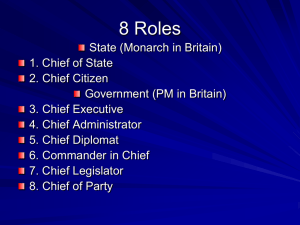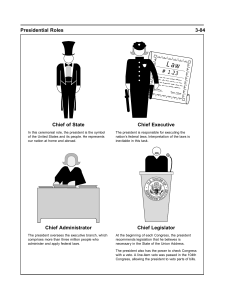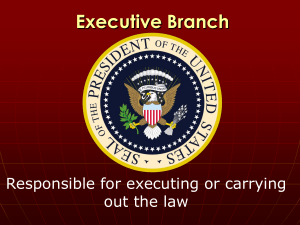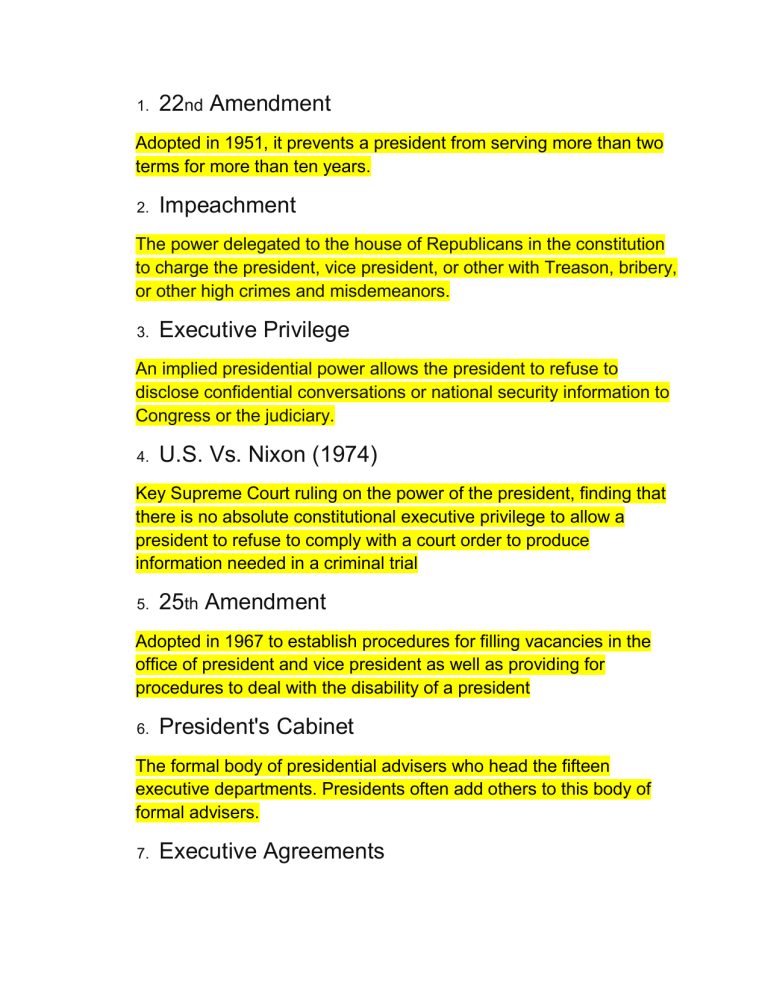
1. 22nd Amendment Adopted in 1951, it prevents a president from serving more than two terms for more than ten years. 2. Impeachment The power delegated to the house of Republicans in the constitution to charge the president, vice president, or other with Treason, bribery, or other high crimes and misdemeanors. 3. Executive Privilege An implied presidential power allows the president to refuse to disclose confidential conversations or national security information to Congress or the judiciary. 4. U.S. Vs. Nixon (1974) Key Supreme Court ruling on the power of the president, finding that there is no absolute constitutional executive privilege to allow a president to refuse to comply with a court order to produce information needed in a criminal trial 5. 25th Amendment Adopted in 1967 to establish procedures for filling vacancies in the office of president and vice president as well as providing for procedures to deal with the disability of a president 6. President's Cabinet The formal body of presidential advisers who head the fifteen executive departments. Presidents often add others to this body of formal advisers. 7. Executive Agreements Formal government agreement entered into by the president that does not require the advice and consent of the U.S. senate. 8. Veto The formal, constitutional authority of the president to reject bills passed by both houses of Congress, thus preventing their becoming law without further congressional action. 9. Line-Item Veto The authority of a chief executive to delete part of a bill passed by the legislature that involves taxing or spending. The legislature may override a veto, usually with a two-thirds majority of each chamber. 10. Pocket Veto a bill fails to become law because the president did not sign it within ten days before congress adjourns 11. War Powers Resolution Passed by Congress in 1973, the president is limited in deploying troops overseas to a sixty-day period in peacetime (which can be extended an extra 30 days to permit withdrawals) unless Congress explicitly gives its approval for a more extended period. 12. Pardon An executive grant provides restoration of all citizenship rights and privileges to a specific individual charged or convicted of a crime. 13. Inherent Powers Powers not in the constitution, which the president claims 14. Executive Office of the President (EOP) It was created in 1939 to help the president oversee the executive branch bureaucracy. 15. Office of Management and Budget (OMB) The office that prepares the president's annual budget proposal reviews the budget and programs of the executive departments, supplies the economic forecasts, and conducts detailed analyses of proposed bill and agency rules. 16. Executive Orders a rule or regulation issued by the president that has the effect and formal status of legislation 17. Lame Duck President A politician who is still in office after having lost a reelection bid 18. Signing Statement A written declaration that a president may make when signing a bill into law. Usually, such statements point out sections of the law that the president deems unconstitutional. 19. State of the Union Address A speech given annually by the president to joint session of Congress and to the nation announcing the president's agenda


